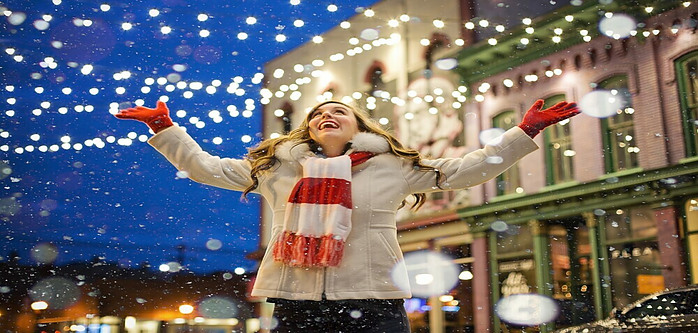On December 25, we celebrate Christmas and the birth of Jesus Christ in the Catholic Church. The content of the holiday is connected with the mystery of God’s incarnation. With the arrival of Jesus in history, God finally and irrevocably stood up for the saint and man.
How to Celebrate Christmas and the Birth of Jesus Christ

The exact date of Jesus’ birth is unknown, although his birth is historical. According to that event, from the 6th century onwards, we also count human history. Pope Julius I (337–352) set December 25 as the date of Jesus’ birth. The time of the winter solstice was already in pre-Christian times, a time of celebrations and festivals. The Church adapted to the theme and gave new content to the period around the solstice when the days started to get longer. On the arrival of a new light in nature, Christians celebrate a new light that will never go out. No matter how precise the date of Jesus’ birth is, for Christian denominations today, it is no longer of essential importance; in fact, its main content is that the Son of God became human and came into the world in order to redeem humanity from its sins.
In the Church, for Christmas, they introduced the custom of celebrating mass three times (at midnight, dawn, and noon), which no other holiday has. Even today, on Christmas, the Church celebrates the Eucharist three times – every priest is allowed to celebrate three Masses. During the midnight mass, the greatest emphasis is on the birth of Jesus in the stable and the praise of the angels; during the dawn shepherd’s mass, the story continues with the shepherds who visited Jesus, with which the birth story ends. The daily mass is the most profound in terms of content, as the central passage from the Holy Scriptures is taken from the beginning of the Gospel of John.
God Reveals His Deepest Inner Secret
»When God sends his only Son and the Spirit of love in the fullness of the hour, he reveals his deepest inner secret. God himself is an eternal exchange of love: Father, Son and Holy Spirit; and intended for us to share in that eternal exchange” (Catechism of the Catholic Church, 221). In the person of Jesus Christ, the incarnate Son of God, we find the explanation of God the Father, which is understandable to us only through the action of the Holy Spirit, which is poured into our interior.
With the birth of Jesus, God became a part of human history. The year of his birth divides history into two: before and after Christ. The moment the Son of God became human, the world changed. The Light came to overcome the moral night of humanity; the Life came to oppose the “culture of death,” and the path came to show the people wandering in that “valley of tears” the direction that leads to Heaven.
The feast of the birth of Jesus is an opportunity for every Christian to open up and allow God to be born in his heart, thus strengthening and deepening his faith.
Christmas Time
The Christmas season begins on the eve of the Feast of the Nativity of the Lord and lasts until the Sunday after the Feast of the Annunciation, including the Sunday of the Cross of Jesus. In the center of Christmas time is the holiday of the Lord’s birth. The holiday reminds us every summer that God loves us so much that he gave his only begotten Son so that no one who believes in him should perish but have eternal life (John 3:17).
The second person of God accepted our human nature through Mary and became a real man. The invisible God becomes visible so we can listen to and imitate him. God became man so that we could live God’s life. The holiday of the Lord’s birth, Christmas, is always modern because it is the holiday of all the moments of our lives, and God’s substitutions can be made every hour. Every day, every moment, God gives us Christ, and we must give ourselves to God through Christ. The Christmas season is short but very rich.
The feast of the Nativity of the Lord has an eighth day, which ends with the feast of Mary, the Holy Mother of God. Mid-eighth is Holy Communion Sunday. Another very important holiday of the Christmas season is the Annunciation of the Lord (January 6). It is about the revelation of Jesus’ divinity. First in wise man, then at the cross, in the Jordan River, then at the wedding in Cana of Galilee. With the feast of the cross of Jesus, on the Sunday after the announcement of the Lord, the celebration of his hidden life ends, and the commemoration of the public announcement and the presence of God’s kingdom begins.